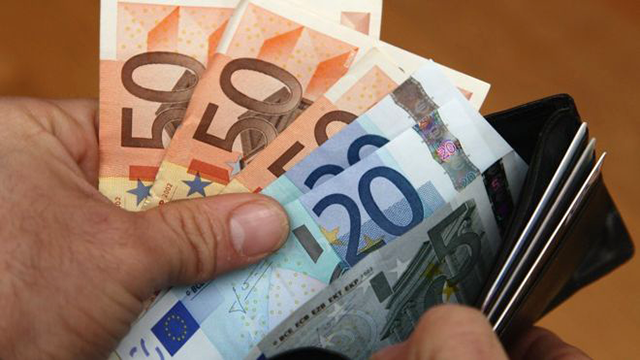You are here
In Finland, basic income boosts well-being but not jobs — study
By AFP - May 06,2020 - Last updated at May 06,2020

AFP photo
HELSINKI — An experiment giving 2,000 unemployed an unconditional, tax-free payment every month created happier citizens but failed to markedly increase employment levels, Finnish researchers said on Wednesday.
The Helsinki government allocated 20 million euros ($21.6 million) to the two-year trial which guaranteed a "basic income" of 560 euros ($604) to a randomly selected group of jobless people.
Researchers studied whether the no-strings-attached income could incentivise them to find work more than traditional unemployment benefits, which may be docked as soon as the recipient starts earning money.
However, researchers said basic income led to participants being employed for an average of just six extra days during a one-year period of the trial.
The "small" effect on work suggested that for some benefit recipients, "the problems related to finding employment are not related to bureaucracy or to financial incentives," Kari Hamalainen of Finland's VATT Institute for Economic Research said in a statement.
A basic income has been widely touted as a possible solution to the economic fallout of the coronavirus crisis, which has put tens of millions of jobs at risk worldwide.
Although the Finnish study did not produce the hoped-for job market stimulus, participants "were more satisfied with their lives and experienced less mental strain, depression, sadness and loneliness," researchers said.
The guaranteed monthly payment also led to participants becoming more trusting of others and in the institutions of society.
Although the widest such study to be conducted in recent years in Europe, the Finnish trial was limited to participants who were already unemployed.
Proponents of a true "universal income" call for a monthly payment, sometimes described as a citizens' wage, to be given to everyone regardless of their wealth, family or work situation.
Similar schemes have been trialled in Kenya, Canada, India and parts of the United States.
The experiment has not been without detractors. Prior to the coronavirus crisis, Finnish trade unions called instead for employers to pay living wages that do not need to be subsidised by benefits.
The Paris-based Organisation for Economic Cooperation and Development has in the past claimed that a basic income programme in Finland would not be economically viable and could leave significant numbers of people worse off.
In 2017, Swiss voters rejected a proposed universal basic income in a referendum after critics slammed the idea as rewarding the lazy and the feckless.
Related Articles
HELSINKI — Once notorious for its bland food and long, harsh winters, Finland’s repeated success in the annual happiness rankings has helped
BERLIN — Miko from Berlin may only be five, but he already has 1,000 euros ($1,063) per month to live on — not from hard graft, but as part
HELSINKI — Finland will close its eastern border with Russia, its interior minister said on Thursday, hours after reopening it following a s



















